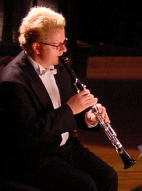|
|
|
Gustav Mahler
b. Kaliste, Bohemia 1860 d. Vienna 1911
Knaben Wunderhorn (1888-1891)
(The Marvellous Horn of the Child)
Influenced by his painful childhood, Mahler was immediately interested in the collection of popular German songs "Knaben Wunderhorn" when he discovered it in 1888. Its variety reminded him of the bohemian folklore he was familiar with from his childhood. From counting rhymes to legends, from a child’s world to wars, Mahler found in these songs a great source of inspiration, and from them were thus created 21 lieder.
"These are not completed poems, but raw blocks of stone from which each one can carve his own statue". That was how Mahler defined his texts. He even identified himself with his texts by shaping them so that they resembled his own image. Mahler did not put himself at the service of the text by glorifying it with the use of music as Schubert or Schumann would have done. On the contrary, Malher exploited the texts with confidence like a tool. All the Lieder were composed for the male vocalist, and Mahler was the man.
The first nine Lieder of this collection were written for voice and piano, and the following, those of today’s program, were written for voice and orchestra. Mahler also wrote a version for voice and piano between 1892 and 1901.
Verlorne Müh (Lost effort)
This Lied is one of the few comical lieder. A young farmer girl tries to catch the attention of a boy who does not want her. Ideas come up in order to seduce the boy, but in vain, for he pushes her back. The soloist sings in turns the part of the girl begging, and that of the young man trying to shorten the interview.
The contrast between the parts is caustic, reflecting the "Lost effort" !
Wer hat das Liedlein erdacht? (Who Thought up this Little Song?)
For this light tune, Mahler mixed two poems on a common subject: love.
Even though the entire piece is fluid, with beautiful ternary rhythms, the soloist voice is virtuosic with impressive singing exercises. Might it be a salute to the baroque?
Das irdische Leben (Life on Earth)
This Lied has a poignant atmosphere for a dramatic subject.
A child begs his mother to give him some bread, but she always makes him wait, pretending the bread is not ready yet… until the child dies! The piano plays a significant role: it respectively introduces the characters, then accompanies them in a kind of gasping race, jolting into extreme low tones, its goal being death.
Rheinlegendchen (Little Legend on the Rhine)
A beautiful tale is told on a light waltz rhythm that often holds its breath. The story tells of a girl’s ring being thrown into water. The ring is swallowed by a fish that ends up on the king’s table. The king asks who the owner of the ring is, the beloved one introduces herself, and thus the marriage is finally granted. The melody flows greatly, and there is lightness in the accompaniment. The ring, the water, the hope… nothing escapes the accompaniment, which faithfully supports the text.
Lob des hohen Verstands (Praise of the High Competence)
This is a light and pastoral piece in which two birds – a nightingale and a cuckoo – compete, arbitrated by an ass. “Cuckoo” and “heehaw” are the vocabulary of this burlesque work.
Lied des Verfolgten im Turm (Song of the Prisoner in the Tower)
This Lied contracts the hardness of an imprisoned man claiming he is free of thought and the softness of his fiancee trying to appease his violence. The prisoner is stubborn to the extent that he pushes the girl back to maintain his freedom from thought. In the end she is discouraged. The piece is marked by a competition between irregular rhythms and beautiful melodic lines. Unfortunately, the prisoner’s hardness wins out.
Wo die Schönen Trompeten blasen? (Where do the Pretty Trumpets Blow?)
This Lied is the song of a young man who clandestinely visits his beloved before leaving for war. The trumpets sound throughout the secret rendezvous. They are discreet, in the background, but always present to remind the lovers of what is awaiting them. The military call played by the piano overlaps the languorous discourse of the lovers, a contrast that augurs the worst.
Sophie Miczka
|
|


